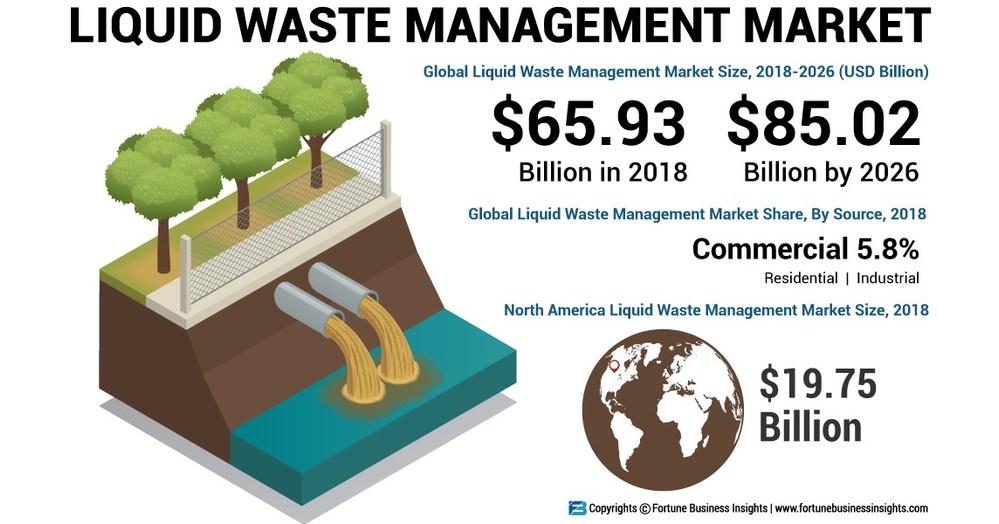Indicators on Reclaim Waste You Should Know
Indicators on Reclaim Waste You Should Know
Blog Article
The Ultimate Guide To Reclaim Waste
Table of ContentsOur Reclaim Waste IdeasAll about Reclaim WasteHow Reclaim Waste can Save You Time, Stress, and Money.Not known Facts About Reclaim WasteLittle Known Facts About Reclaim Waste.
Discover the types, events, and types of liquid waste. Residential sewer waste refers to the waste and products from a domestic septic storage tank. This sort of waste is created by human beings in residences, colleges, and other buildings. This only consists of septic containers that have a drainpipe field. The proper monitoring and disposal of residential sewage waste call for liquid waste to be transferred to a sewer therapy plant where the appropriate methods and devices are related to detoxify and get rid of waste.
Commercial waste usually includes possible dangers, such as flammable products or a mixture of liquid and strong waste products, and needs a more innovative and in-depth disposal process. The disposal of commercial waste normally involves the purification of waste prior to transport to ensure risk-free and correct disposal. Hazardous waste is created from by-products and overflow of commercial procedures and manufacturing.
This sort of waste can not use the same sewage administration transport or procedures as septic or business liquids. The hazardous waste management process needs the assessment and screening of fluid waste prior to it undertakes the disposal procedure (liquid waste disposal). Runoff waste is the fluid waste that originates from drainage and excess stormwater in very booming locations or cities
Drainage waste can trigger contamination and flooding if not managed effectively. Discover more about sewer cleansing and waste administration. Making sure appropriate waste administration can avoid catastrophes and lower ecological injury. Both people in household setups and experts in industrial or manufacturing markets can benefit from understanding the processes and regulations of liquid waste monitoring.
Reclaim Waste Can Be Fun For Anyone
Call PROS Services today to discover about our waste monitoring and disposal services and the appropriate means to take care of the fluid waste you produce.
(https://share.evernote.com/note/7e2c20e2-4e08-1523-1aa2-d06cf7e27761)Do you understand what happens to your water when you end, flush the toilet or drain pipes the cleaning equipment? No? Well, it deserves knowing. This so-called 'wastewater' is not only an important source but, after therapy, will be launched to our land, waterways or the ocean. Used water from bathrooms, showers, baths, cooking area sinks, laundries and commercial processes is referred to as wastewater.

water made use of to cool down machinery or clean plant and equipment). Stormwater, a form of wastewater, is runoff that flows from farming and metropolitan locations such as roofing systems, parks, yards, roads, paths and seamless gutters into stormwater drains pipes, after rainfall. Stormwater moves untreated directly to neighborhood creeks or rivers, at some point reaching the sea.
The Facts About Reclaim Waste Revealed
In Queensland, the majority of wastewater is treated at sewage therapy plants. Wastewater is transferred from residential or industrial websites via a system of drains and pump stations, recognized as sewerage reticulation, to a sewage therapy plant. City governments construct, maintain and run most sewer treatment plants. Operators are licensed under the Environmental Security Act 1994 to discharge treated wastewater at an acceptable environmental requirement right into rivers.
The Department of Natural Resources suggests city browse around here governments about managing, operating and keeping sewerage systems and therapy plants. In unsewered locations, regional governments might call for owners to mount private or home sewage treatment systems to treat domestic wastewater from commodes, cooking areas, bathrooms and laundries. The Department of Natural Resources authorises making use of house systems when they are proven to be effective.
In some new subdivisions, treatment of some stormwater to eliminate clutter, sand and crushed rock has started making use of gross pollutant traps. Wastewater treatment occurs in 4 stages: Gets rid of solid issue.
Makes use of tiny living organisms understands as micro-organisms to damage down and eliminate remaining dissolved wastes and fine bits. Micro-organisms and wastes are included in the sludge.
More About Reclaim Waste
Nutrient removal is not readily available at all sewage treatment plants since it calls for pricey specialised tools. Clear liquid effluent generated after therapy may still contain disease-causing micro-organisms - liquid waste disposal melbourne.

This typically indicates wastewater has to be treated or impurities eliminated before it can be discharged to rivers. A lot of wastewater streams into the sewerage system. Under the Act, local governments carry out approvals and permits for environmentally appropriate tasks (Periods) involving wastewater releases that could have a neighborhood effect. The department carries out authorizations and licences to Periods entailing wastewater launches that might have a local or statewide effect.
The Definitive Guide to Reclaim Waste
Surveillance offers factual information concerning water top quality and can verify that licence problems are being fulfilled. The information acquired with tracking provides the basis for making water top quality decisions.
Report this page